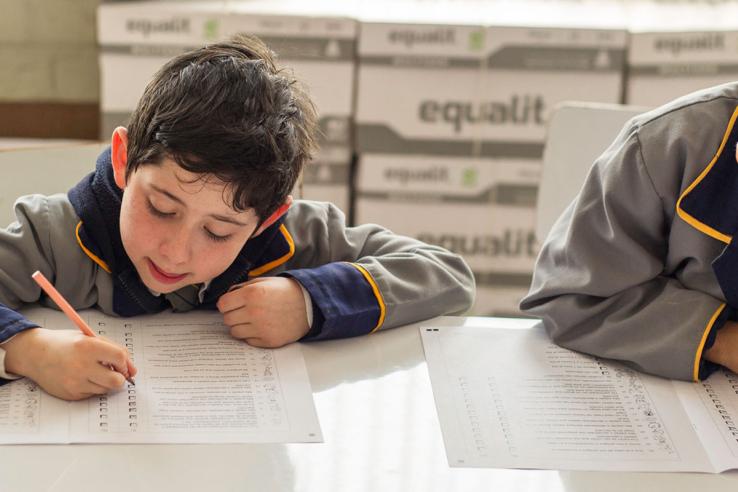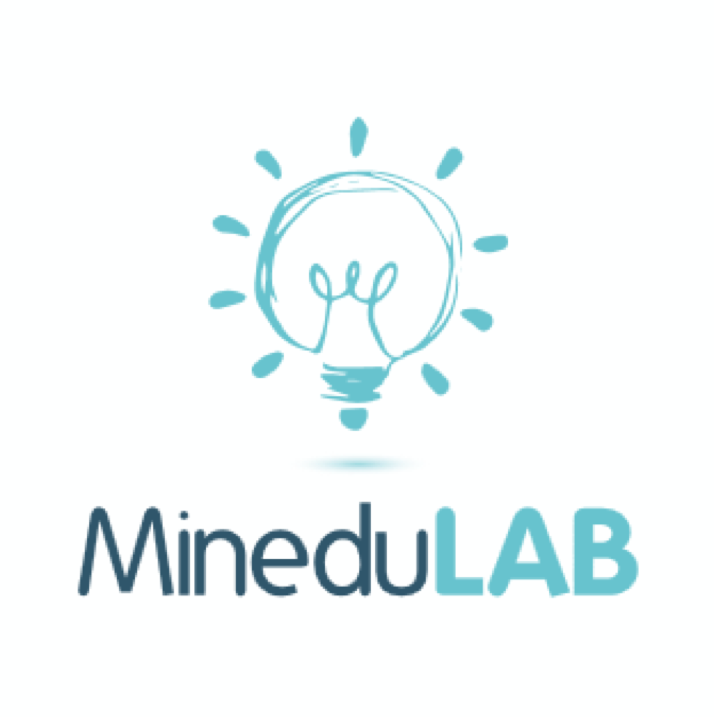MineduLAB

MineduLAB is an innovation lab for education policy housed within the government of Peru. The lab will pilot and evaluate the effectiveness of innovations with the ultimate goal of allowing the Ministry to use evidence to improve children’s learning throughout the country.
The lab’s close ties with academia are critical to its success. The collaborative MineduLAB process combines researchers’ expertise with the political and operational experience of policymakers, ensuring that the innovations are informed by existing rigorous evidence and cutting-edge theories on education and behavioral economics.
The MineduLAB team of four monitoring and evaluation professionals is nested inside the Ministry of Education (Minedu) Office of Strategic Monitoring and Evaluation (OSEE). For each innovation the team follows the following policy cycle:
MineduLAB Policy Cycle

Call for Proposals for Third Innovation Window
MineduLAB has launched its Third Innovation Window, a call for proposals to identify low-cost innovations that can be evaluated using experimental methods and administrative data from the Ministry of Education of Peru (Minedu). Researchers, practitioners, and Minedu units have until May 31, 2017 to submit.
The innovation proposals must comply with the following requirements:
- Address one or more important problems in the education sector
- Be inexpensive and have a potentially high impact
- Can be evaluated using existing administrative data
- Can be evaluated using experimental methods
- Does not interfere with ongoing education policy
The proposals that are selected will initiate the innovation cycle that is managed by MineduLAB. Once selected, the innovations will move to the design phase in which the team of researchers and Minedu will coordinate the final design of the innovation and its evaluation. Once the design is ready, the Minedu unit involved will be responsible for the implementation of the innovation. Finally, when the implementation ends and the necessary administrative data is available, the impact of the innovation will be evaluated.
For more details on how to participate in the Third Window of Innovation of MineduLAB, see the guidelines for the call for proposals. We recommend that at least one applicant from each proposal have either an intermediate or advanced level of Spanish.
What innovations are being tested?
1. Giving public school directors, teachers, and parents booklets with comparative information on results of similar schools in the national standardized test. Researchers: Francisco Gallego (Pontificia Universidad Catolica de Chile), Christopher Neilson (Princeton University).
- Expected Impact: Behavioral changes in school actors that translate to increased efforts to improve student learning.
2. Weekly delivery of an informative and motivational text message campaign aimed at public school teachers. Researchers: Renos Vakis (World Bank), Maria Gabriela Farfan (World Bank).
- Expected Impact: Increased motivation and satisfaction of teachers with their work and the education system and, as a consequence, improved learning acheivements of students
3. Text message alerts to personnel responsible for school facilities maintenance incorporating behavioral principles and testing various types of messages (alert and information, monitoring audit, social norm, publication of results). Researchers: Stanislao Maldonado (Universidad del Rosario), Andrew Dustan (Vanderbilt University), Juan Manual Hernandez-Agramonte (IPA).
- Expected Impact: A behavior change that increases the possibility that resources are appropriately used and that there is accountability for their use at the appropriate time.
4. Sharing with 1st and 2nd grade students how effort can develop intelligence and reinforcing this concept with exercises on a text discussed in class (“Growth Mindset”). Researchers: Renos Vakis (World Bank), Ingo Outes (University of Oxford), Alan Sanchez (GRADE).
- Expected Impact: Change the self-perception of students about their cognitive abilities and improve their learning achievements.
5. Videos for 5-11th grade students sharing the financial benefits of secondary and higher education in the job market, as well as educational options and ways to access higher education. Researchers: Christopher Neilson (Princeton University), Francisco Gallego (Pontificia Universidad Catolica de Chile), Oswaldo Molina (Universidad del Pacifico).
- Expected Impact: Reduction of drop-out rates in secondary school, improvements in student’s school performance, and increased secondary school completion rate.
6. Increase the visibility of the frequency and costs of teacher’s absenteeism (in design). Researchers: Renos Vakis (World Bank), Simon Ruda (Behavioural Insights Team), Stewart Kettle (Behavioural Insights Team).
- Expected Impact: Reduce teacher’s absenteeism and improve student’s learning achievements.
Priority areas for innovation
- Improve teachers’ performance through the use of non-monetary incentives
- Improve feedback to public schools on key management indicators of the monitoring system “Semáforo Escuela” and its impact on education outcomes
- Increase applications by high-performing students to higher education scholarships and loans through sharing information about their relative performance and opportunities in higher education
- Improve teachers’ access to pedagogical content through technological innovations that can improve their performance in the classroom and the learning achievement of their students
- Reduce teacher absenteeism and its effect on student’s learning achievements
Participating Organizations
Ministry of Education (MINEDU)
Innovations for Poverty Action (IPA)
Abdul Latif Jameel Poverty Action Lab (J-PAL)
Fortalecimiento de la Gestión de la Educación (FORGE)
Coverage in the Media
- Profesor Francisco Gallego participa en taller sobre política educativa en Perú — Pontificia Universidad de Chile
- Presentacion de MineduLab, laboratorio de innovacion costo efectiva de la politica educativa — FORGE
- Laboratorio MineduLAB identifica innovaciones de bajo costo para mejorar gestión educativa — Minedu
- Ministerio de Educación presentará laboratorio de innovación institucional — Andina
Events
- Workshop "Cost-Effective Innovations Lab" - JPAL LAC/IPA/Ministry of Education
- Secretary of Strategic Planning of the Ministry of Education of Peru presents EduLAB, J-PAL LAC and IPA joint initiative, at High-Level Conference on Impact Evaluation in Lima, Peru.
MineduLAB Team
Staff:
- Evaluation Coordinator: Fabiola Cáceres
- Coordinator:Luis Baiocchi
- Evaluation Specialist: César Huaroto
- Evaluation Analyst: Andrea Cornejo
Research Advisory Board:
- Francisco Gallego (PUC-Chile)
- Sebastián Galiani (University of Maryland)
- Christopher Neilson (Princeton University)
Find Out More
If you want to learn more about how the LAB operates and what innovations it is currently implementing, please see our booklet on MineduLAB (in Spanish).

